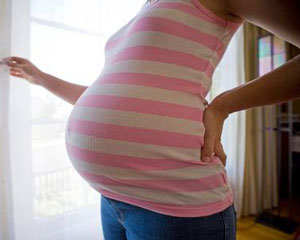
A FIFTEEN-year-old girl writhes in pain; her young face contorted in a grotesque manner, but the church birth attendant holds her down while another shoves her bare hands into her womb.
By Phyllis Mbanje
She gasps for breath as the two women order her to push harder or she will die together with her unborn child. Mustering all her energy, she pushes again. This goes on for hours and finally with one last attempt the lifeless human bundle pops out. The umbilical cord had wound itself around the little neck, snuffing life out of the baby.
The motionless, bloodied little body lies on the floor as the two birth attendants ponder over their next move.
Sensing danger, the teenager asks in a frightened voice why her baby is not crying. Jolted back to reality the birth attendants quickly reassure the young girl and proceed to complete the task at hand.
This tale is one of the many harrowing and terrifying incidents that take place at some of the “bush maternity” camps of some conservative apostolic sects who consider modern health facilities as taboo in their church.
So chilling are some of the narratives that they seem untrue, but researchers who have spent years studying these Vapostori communities and documenting their way of life have established this horrible fact.
A recent qualitative study of the Role of Apostolic Midwives in Mashonaland Central Province by the Organisation for Public Health Interventions and Development (Ophid) found that women in ultra conservative apostolic sects are only able to receive assistance from traditional birth attendants (TBAs) at home or in traditional birth camps, often under unhygienic conditions.
- Chamisa under fire over US$120K donation
- Mavhunga puts DeMbare into Chibuku quarterfinals
- Pension funds bet on Cabora Bassa oilfields
- Councils defy govt fire tender directive
Keep Reading
The study revealed that the Vapostori traditional birth attendants were not medically trained. The pregnant women at their birthing camps receive only spiritual guidance and faith healing when life-threatening complications occur during and or after birth.
Ophid Trust said these conservative apostolic groupings view modern health services as “heathen, devilish and secular”.
During a recent United Nations Children’s Fund (Unicef) facilitated discussion in Harare, director of Ophid, Karen Webb said while conducting their research study, they interviewed some leaders of the Johanne Masowe and Johanne Marange sects who told them that the Holy Spirit was the guiding force in faith healing.
“They believe it [Holy Spirit] reveals problems through visions and provides solutions to all problems,” she said. The research found that the sects have devised their own health care system. For example, for abdominal scans for pregnant women, hands are used, while the Holy Spirit visions ferrets out and undoes complications.
“Treatment of problems is done with prayer and holy water. During labour there is no sterile equipment or infection control procedures that are followed,” Webb said.
However, she said it was critical to understand and incorporate these groups, especially considering that 38% of child bearing women were identified as members of apostolic churches.
“Some of these groups have developed their own healthcare systems, but little is known of these practices,” she said.
For pregnant members, traditional apostolic birth attendants (ATBAs) provide maternal healthcare and although they have not received any formal health training, they wield a lot of power and influence.
“The AtBAs are ‘appointed by the Holy Spirit’ and run birth camps which are not part of the formal health delivery system,” Webb said.
Members that do access formal medical services are perceived as being of “weak faith, defiled and elevating the medical system above God and thus taking away God’s glory”.
The rate of maternal and neonatal mortality in Zimbabwe is one of the highest in the region. According to Zimstat 2012 statistics, each day eight women die while giving birth, and 100 children die from childbirth and neonatal complications.
According to a consultant on health and sociology issues, Brian Maguranyanga, pregnant women belonging to conservative apostolic sects continue to deliver in non-institutional settings and often without skilled attendance. “Pregnant women are forced to confess their sins during delivery and are subjected to torture and emotional abuse,” Maguranyanga said.
So, can these sects be legally charged for wantonly putting the lives of women and children at risk?
University of Zimbabwe law professor Geoff Feltoe said the constitution stipulates the “right to life, health care services and the right of access to reproductive health care services”.
He explained that cases could be brought in the public interest challenging the constitutionality of certain apostolic practices that lead to harm of women and their babies.
“Constitutional litigation can be an important tool to attack unacceptable practices like, for instance, current constitutional challenges to child marriages,” Feltoe said.
He said constitutional litigation had limitations dependent upon persons or organisations bringing forward the cases, adding however, that it may take a long time to finalise.
“And then there is the freedom of religion argument. The constitution affords the right to freedom of religion or beliefs. Apostolics may try to argue that they are simply exercising their constitutional right,” he said.
Since independence, government criminalised various cultural practices considered contrary to modern values on rights of women and children, like marital rape and forced virginity tests, but this has not really stopped the practices.
“We need to be less antagonist and more collaborative in our approach and employ inclusive inter-faith approaches rather than interventions targeting Apostolics”, Webb said.











